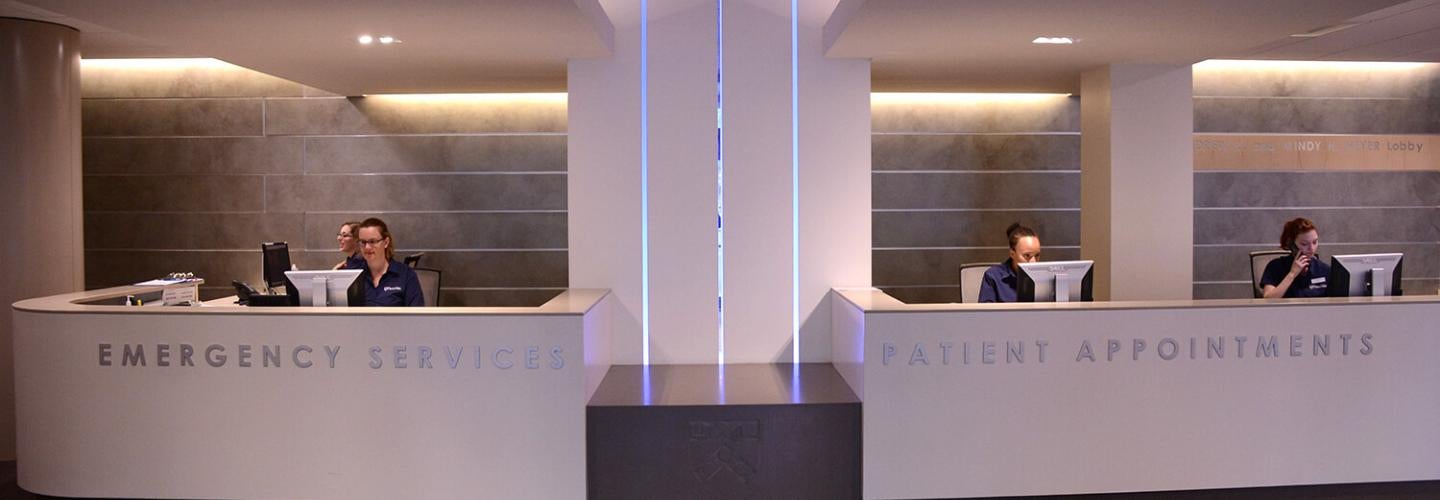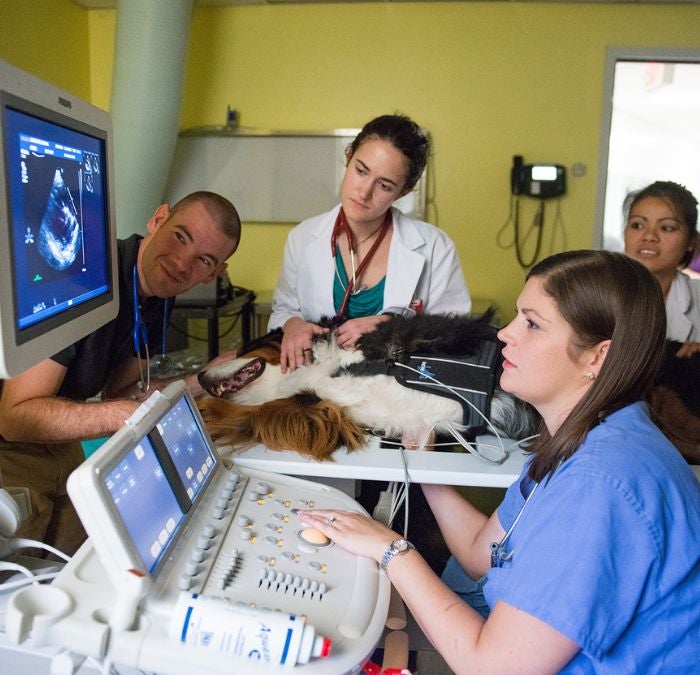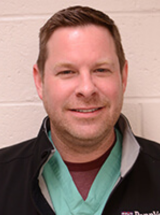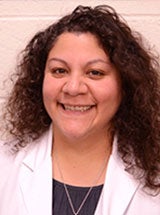
About Ryan Hospital
Built in 1981, the Matthew J. Ryan Hospital — named in honor of a member of the Pennsylvania House of Representatives (HR) who served for over 40 years as a representative and as Speaker, set the world standard for healthcare for animals, incorporating the most advanced biomedical equipment of its day, integrating teaching, research, and patient care. The four-story building, incorporating 150,000 square feet of space, provides in-patient care for some 250 animals. It is designed to provide maximum comfort, safety, and compassionate care for its patients.
Ryan Hospital has an excellent working relationship with both Penn Medicine and Children’s Hospital of Philadelphia (CHOP), as well as other medical and biomedical facilities throughout the University of Pennsylvania, including Abramson Cancer Center, Wistar Institute, and others.
Ryan Hospital was recently re-certified as a Level One Trauma Facility by the Veterinary Emergency and Critical Care Society (VECCS).
For over a decade, the hospital has led animal care as the first university-based hospital to receive a Level 1 certification from VECCS, designated a trauma center by the American College of Veterinary Emergency and Critical Care (ACVECC). Read more about the certification process.
We Value your Opinion
If you have a complaint or concern, we will find out what occurred and identify how we can improve upon the process to prevent the situation from occurring again.
Essential to Our Work
Interns, Residents, and Nurses
Interns and Residents
An intern is a veterinarian seeking additional training in a more specialized hospital environment for one year. Most interns rotate through multiple services in our hospital, obtaining broad exposure to veterinary medicine, or are specialty interns who focus on a single field.
A resident is a veterinarian who has already completed an internship and has decided to continue training in a particular specialty, typically for three years. At the end of their residency, they will look to become board-certified in a specialty service through an exam process.
Find out more about these important roles at Ryan!
Penn Vet Nurses
A Penn Vet nurse embodies the essence of compassion, dedication, and unwavering commitment. Our nurses have many responsibilities including animal care, laboratory specimen analysis, surgical assistance, anesthesia, radiographic imaging (x-ray), nutritional management, dental prophylaxis, physical therapy, and client education.


Join the team
Your Career in Veterinary Healthcare Starts Here
If you are passionate about animal healthcare and want to work in a dynamic and challenging environment, you have come to the right place. At Ryan Veterinary Hospital, we provide the highest quality care to animals while also advancing the field of veterinary medicine through research and education. That’s why we offer our employees the resources they need to achieve their goals. We provide career planning, training, professional development and mentorship opportunities.
Ryan Hospital Leadership Team
Hospital Leadership

Michael McCallum, CVT

Rosemary Lombardi

Emily Savino

Donna Oakley

Maria Calabrese

Tom Brown
Michele Perll

Rose Hilton
Facilities
The Matthew J. Ryan Veterinary Hospital is a leading teaching hospital renowned for its cutting-edge facilities and equipment catering to small animal emergencies and treatments. With a focus on advanced care, it boasts a minimally invasive surgery suite, an imaging and treatment center, and along with state-of-the-art diagnostic equipment like CT scanners, ultrasound stations, and specialized surgical tools.
Our Rosenthal Imaging and Treatment Center (RITC), the Commonwealth’s only oncology and imaging facility devoted entirely to veterinary medicine, is a 9,200-square-foot facility, housing magnetic resonance imaging (MRI) and CT-Scan equipment for diagnostics, as well as a linear accelerator for radiation treatment.
Penn Vet was one of the first facilities to have an animal bloodmobile and blood bank, with at least 7,000 canine donors as well as in-house cat donors. The hospital’s animal bloodmobile makes trips to blood drives two to three times a week.
Our Facilities & Equipment
Emergency Service suite that’s available 24 hours a day, 7 days a week, 365 days a year
- The Buerger Family Minimally Invasive Surgery Suite
- The Rosenthal Imaging and Treatment Center (RITC)
- Richard Lichter Advanced Dentistry and Oral Surgery Suite
- Six sterile operating rooms and two minor surgery rooms
- Our animal bloodmobile and blood bank
Diagnostics and treatment equipment:
- MRI, CT Scanner, and ultrasound stations
- Linear accelerator for radiation therapy
- Operating microscope for surgeries
- Cataract surgery equipment
- Endoscopy, laparoscopy, arthroscopy
- Doppler ultrasound for cardiac diagnostics
Ryan Veterinary Hospital
Emergencies:
(215) 746-8911
By Appointment:
(215) 746-8387



